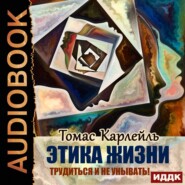По всем вопросам обращайтесь на: info@litportal.ru
(©) 2003-2025.
✖
Sacred Books of the East
Автор
Год написания книги
2018
Настройки чтения
Размер шрифта
Высота строк
Поля
Let him not despise what he has received, nor ever envy others: a mendicant who envies others does not obtain peace of mind.
A Bhikshu who, though he receives little, does not despise what he has received, even the gods will praise him, if his life is pure, and if he is not slothful.
He who never identifies himself with name and form, and does not grieve over what is no more, he indeed is called a Bhikshu.
The Bhikshu who behaves with kindness, who is happy in the doctrine of Buddha, will reach the quiet place (Nirvâna), happiness arising from the cessation of natural inclinations.
O Bhikshu, empty this boat! if emptied, it will go quickly; having cut off passion and hatred, thou wilt go to Nirvâna.
Cut off the five fetters, leave the five, rise above the five. A Bhikshu, who has escaped from the five fetters, he is called Oghatinna—"saved from the flood."
Meditate, O Bhikshu, and be not heedless! Do not direct thy thought to what gives pleasure, that thou mayest not for thy heedlessness have to swallow the iron ball in hell, and that thou mayest not cry out when burning, "This is pain."
Without knowledge there is no meditation, without meditation there is no knowledge: he who has knowledge and meditation is near unto Nirvâna.
A Bhikshu who has entered his empty house, and whose mind is tranquil, feels a more than human delight when he sees the law clearly.
As soon as he has considered the origin and destruction of the elements of the body, he finds happiness and joy which belong to those who know the immortal (Nirvâna).
And this is the beginning here for a wise Bhikshu: watchfulness over the senses, contentedness, restraint under the law; keep noble friends whose life is pure, and who are not slothful.
Let him live in charity, let him be perfect in his duties; then in the fulness of delight he will make an end of suffering.
As the Vassikâ plant sheds its withered flowers, men should shed passion and hatred, O ye Bhikshus!
The Bhikshu whose body and tongue and mind are quieted, who is collected, and has rejected the baits of the world, he is called quiet.
Rouse thyself by thyself, examine thyself by thyself, thus self-protected and attentive wilt thou live happily, O Bhikshu!
For self is the lord of self, self is the refuge of self; therefore curb thyself as the merchant curbs a noble horse.
The Bhikshu, full of delight, who is happy in the doctrine of Buddha will reach the quiet place (Nirvâna), happiness consisting in the cessation of natural inclinations.
He who, even as a young Bhikshu, applies himself to the doctrine of Buddha, brightens up this world, like the moon when free from clouds.
CHAPTER XXVI
THE BRÂHMANA
Stop the stream valiantly, drive away the desires, O Brâhmana! When you have understood the destruction of all that was made, you will understand that which was not made.
If the Brâhmana has reached the other shore in both laws, in restraint and contemplation, all bonds vanish from him who has obtained knowledge.
He for whom there is neither the hither nor the further shore, nor both, him, the fearless and unshackled, I call indeed a Brâhmana.
He who is thoughtful, blameless, settled, dutiful, without passions, and who has attained the highest end, him I call indeed a Brâhmana.
The sun is bright by day, the moon shines by night, the warrior is bright in his armor, the Brâhmana is bright in his meditation; but Buddha, the Awakened, is bright with splendor day and night.
Because a man is rid of evil, therefore he is called Brâhmana; because he walks quietly, therefore he is called Samana; because he has sent away his own impurities, therefore he is called Pravragita (Pabbagita, a pilgrim).
No one should attack a Brâhmana, but no Brâhmana, if attacked, should let himself fly at his aggressor! Woe to him who strikes a Brâhmana, more woe to him who flies at his aggressor!
It advantages a Brâhmana not a little if he holds his mind back from the pleasures of life; the more all wish to injure has vanished, the more all pain will cease.
Him I call indeed a Brâhmana who does not offend by body, word, or thought, and is controlled on these three points.
He from whom he may learn the law, as taught by the Well-awakened (Buddha), him let him worship assiduously, as the Brâhmana worships the sacrificial fire.
A man does not become a Brâhmana by his plaited hair, by his family, or by birth; in whom there is truth and righteousness, he is blessed, he is a Brâhmana.
What is the use of plaited hair, O fool! what of the raiment of goat-skins? Within thee there is ravening, but the outside thou makest clean.
The man who wears dirty raiments, who is emaciated and covered with veins, who meditates alone in the forest, him I call indeed a Brâhmana.
I do not call a man a Brâhmana because of his origin or of his mother. He is indeed arrogant, and he is wealthy: but the poor, who is free from all attachments, him I call indeed a Brâhmana.
Him I call indeed a Brâhmana who, after cutting all fetters, never trembles, is free from bonds and unshackled.
Him I call indeed a Brâhmana who, after cutting the strap and the thong, the rope with all that pertains to it, has destroyed all obstacles, and is awakened.
Him I call indeed a Brâhmana who, though he has committed no offence, endures reproach, stripes, and bonds: who has endurance for his force, and strength for his army.
Him I call indeed a Brâhmana who is free from anger, dutiful, virtuous, without appetites, who is subdued, and has received his last body.
Him I call indeed a Brâhmana who does not cling to sensual pleasures, like water on a lotus leaf, like a mustard seed on the point of a needle.
Him I call indeed a Brâhmana who, even here, knows the end of his own suffering, has put down his burden, and is unshackled.
Him I call indeed a Brâhmana whose knowledge is deep, who possesses wisdom, who knows the right way and the wrong, and has attained the highest end.
Him I call indeed a Brâhmana who keeps aloof both from laymen and from mendicants, who frequents no houses, and has but few desires.
Him I call indeed a Brâhmana who without hurting any creatures, whether feeble or strong, does not kill nor cause slaughter.
Him I call indeed a Brâhmana who is tolerant with the intolerant, mild with the violent, and free from greed among the greedy.
Him I call indeed a Brâhmana from whom anger and hatred, pride and hypocrisy have dropped like a mustard seed from the point of a needle.
Him I call indeed a Brâhmana who utters true speech, instructive and free from harshness, so that he offend no one.
Him I call indeed a Brâhmana who takes nothing in the world that is not given him, be it long or short, small or large, good or bad.
Him I call indeed a Brâhmana who fosters no desires for this world or for the next, has no inclinations, and is unshackled.
Him I call indeed a Brâhmana who has no interests, and when he has understood the truth, does not say How, how? and who has reached the depth of the Immortal.
Him I call indeed a Brâhmana who in this world has risen above both ties, good and evil, who is free from grief, from sin, and from impurity.
















